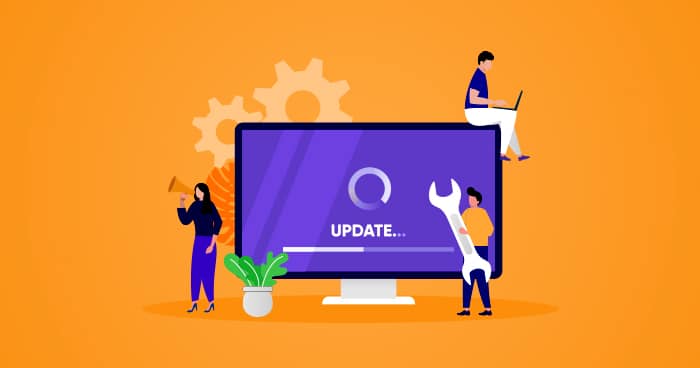Introduction
In the digital era, a website acts as the front door to your business or personal brand. It’s often the first point of contact between you and your audience, making its maintenance and upkeep a crucial aspect of your online presence. Website maintenance isn’t just about fixing bugs; it’s a continuous process of keeping your site functional, relevant, and up-to-date. This comprehensive guide will delve into effective strategies for maintenance, ensuring your site remains an asset rather than a liability.
Website maintenance involves regular checks and updates to ensure optimal performance and security. Neglecting this aspect can lead to a range of issues, from reduced user engagement to severe security vulnerabilities. By embracing effective maintenance strategies, you not only enhance user experience but also bolster your site’s SEO and online reputation.
Understanding the Importance of Regular Website Maintenance
Regular website maintenance is vital for several reasons. Firstly, it ensures your site is running smoothly and efficiently. Regular updates can fix bugs, improve speed, and enhance overall functionality, directly impacting user experience. In an era where users expect quick and seamless interactions, having a well-maintained website is non-negotiable.
Furthermore, security is a top concern in maintenance. Outdated plugins and software are prime targets for hackers. Regular maintenance includes updating these elements, reducing the risk of security breaches. By prioritizing website maintenance, you’re not just safeguarding your site but also protecting sensitive user data, which is crucial for maintaining trust and credibility.

Key Components of Website Maintenance
Effective website maintenance encompasses several key areas. The first is content updates. Regularly updating your website’s content keeps it relevant and engaging, which is essential for both user retention and SEO. This includes updating blog posts, news sections, and product information.
Technical upkeep is another critical component. This involves ensuring all aspects of your site, including hosting, domain renewals, and CMS updates, are in check. Regular technical audits can identify issues like broken links or outdated plugins, which can negatively impact user experience and site performance.
Choosing the Right Website Maintenance Services
Selecting the right website maintenance services is crucial for efficient upkeep. Professional website maintenance services offer expertise in various aspects of site management, from technical support to content updates. When choosing a service provider, consider factors like their experience, range of services, and client reviews. Opting for a reliable and experienced service ensures your website remains in top condition, allowing you to focus on other aspects of your business.
Implementing a Regular Website Maintenance Schedule
Establishing a regular schedule is a cornerstone of effective website maintenance. This schedule should include daily, weekly, monthly, and yearly tasks. Daily tasks might involve checking for software updates and monitoring website performance, while weekly tasks could include updating content and reviewing SEO strategies.
Monthly tasks are more comprehensive, such as conducting security scans and reviewing website analytics. Yearly tasks might include a complete website overhaul or redesign. By adhering to a structured maintenance schedule, you ensure consistent performance and minimal downtime for your website.
The Role of Analytics in Website Upkeep
Analytics play a significant role in website upkeep. By regularly reviewing your website’s analytics, you can gain insights into user behavior, traffic patterns, and engagement metrics. This data is invaluable for making informed decisions about content updates, design changes, and marketing strategies.
Analytics can also help identify issues such as high bounce rates or low conversion rates, guiding you in tweaking aspects of your site to improve user experience and performance. Integrating analytics into your website maintenance strategy ensures your decisions are data-driven and aligned with your audience’s needs.
The Importance of Responsive Design in Website Maintenance
In today’s mobile-first world, having a responsive design is a crucial aspect of website maintenance. A responsive website automatically adjusts its layout and content to fit different screen sizes, providing an optimal viewing experience across all devices. This not only enhances user experience but also positively impacts SEO, as search engines favor mobile-friendly websites.
Regularly testing and updating your website to ensure it’s responsive is a key part of maintenance. This might involve adjusting images, tweaking layouts, or updating code to ensure smooth functionality across various devices.

Balancing Aesthetic Appeal and Functionality
While maintaining the aesthetic appeal of your website is important, it should not come at the cost of functionality. A well-maintained website strikes a balance between a visually appealing design and smooth, efficient performance.
Regular updates should consider both design elements and functional aspects. This includes ensuring the website is visually engaging, easy to navigate, and quick to load. A website that looks great but performs poorly can deter users, just as a highly functional but outdated site can fail to attract and retain visitors.
Best Practices for Website Security Maintenance
Website security is a critical aspect of website upkeep. Best practices include regular software updates, using strong passwords, and implementing security plugins. Regularly backing up your website is also essential, ensuring that in the event of a security breach, you can quickly restore your site with minimal loss.
It’s also important to stay informed about the latest security threats and trends. This proactive approach to security can prevent potential issues and keep your website and user data safe.
Integrating SEO in Your Website Maintenance Costs
SEO should be an integral part of your maintenance plan. Regularly updating your website with SEO-friendly content, optimizing meta tags, and ensuring your site is technically sound are key components of maintaining SEO health.
This also involves staying abreast of the latest SEO trends and algorithm updates, ensuring your website adheres to best practices and ranks well in search engine results. A well-maintained website that is optimized for search engines can drive more traffic and enhance your online visibility.
Conclusion
Effective website maintenance and upkeep are fundamental to the success of your online presence. By implementing regular maintenance schedules, focusing on key components like security, responsive design, and SEO, and choosing the right maintenance services, you can ensure your website remains a dynamic, secure, and engaging platform.
Remember, website maintenance is an ongoing process, not a one-time task. It requires diligence, foresight, and a commitment to continuous improvement. By prioritizing website maintenance, you’re investing in the longevity and success of your digital footprint, ensuring your website continues to serve as a powerful tool for your business or personal brand.
What does it mean when a website is under maintenance?
The term under maintenance refers to a temporary state where a website is not accessible to visitors because updates, improvements, or repairs are being performed on the site.
How often should you maintain a website?
It is recommended to maintain a website regularly, typically on a weekly or monthly basis.
How do you maintain your own website?
We regularly update our website content, optimize meta tags, create high-quality backlinks, and conduct keyword research to maintain our website’s SEO.


